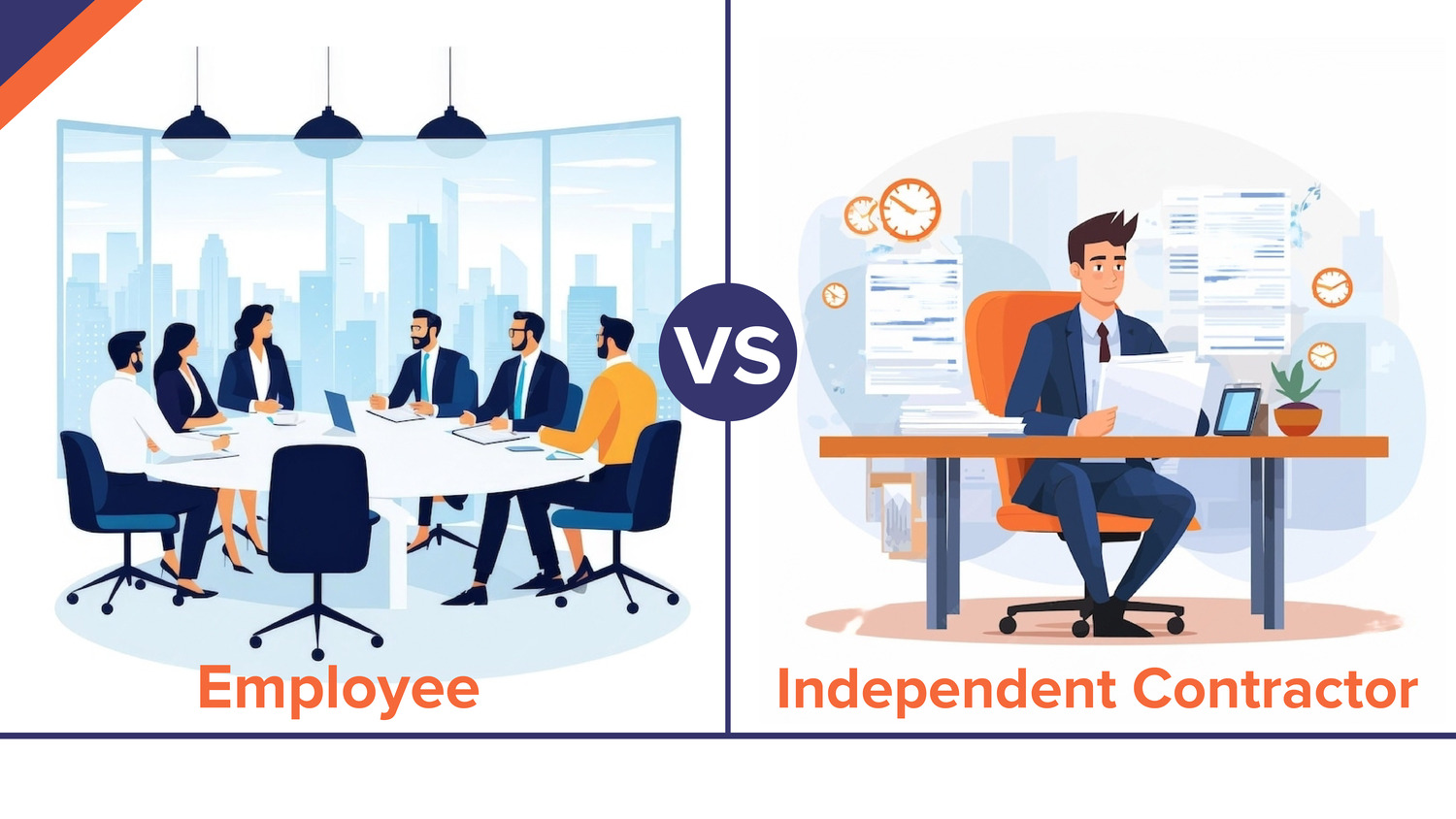In Ghana’s evolving world of work, understanding the difference between an employee and an independent contractor has never been more important. As businesses expand, outsource, and adopt flexible work models, these classifications determine not only tax obligations and social security contributions but also employment rights, legal protections, and business compliance under Ghanaian labour laws.
Many companies assume that anyone who works for them is an employee — but legally, that’s not always true. The line between being “part of the team” and being an external contractor can be blurred, yet it carries significant consequences for both parties.
Definition and Core Difference
-
Employee: A person who works under a contract of service for a wage or salary. The employer directs their work and performance.
📢 GET A DETAILED ARTICLES + JOBS
Join SamBoad's WhatsApp Channel and never miss a post or opportunity.
📲 Join the Channel Now -
Independent Contractor: A self-employed individual working under a contract for services, responsible for delivering a specific result but maintaining control over how the work is done.
In simple terms, employees are part of the organization, while independent contractors are external specialists who provide services to it.
The Two-Fold Test for Classification
1. Control Test
The first test examines who has control over the work.
If a company dictates how tasks should be done and can dismiss the worker for not following instructions, that person is likely an employee. However, if the company only specifies what needs to be done — not how — and the worker manages their own methods and tools, they are more likely an independent contractor.
For example, an external auditor engaged by a company to review financial reports operates independently and is typically classified as a contractor.
2. Integral Test
The second test assesses how integral the role is to the company’s main business activities.
An employee works under a contract of service and performs duties essential to the core business. An independent contractor, on the other hand, operates under a contract for service, supporting but not forming part of the company’s key operations.
For instance, a plumber fixing a pipe in a bank is a contractor — plumbing isn’t part of banking operations. But a bank teller or accountant is an employee because their work is central to the bank’s function.
Rights, Benefits, and Legal Protections
Employees enjoy statutory benefits such as paid leave, maternity leave, severance pay, and social security contributions. Their termination is also regulated by Ghana’s labour laws, offering protection against unfair dismissal.
Independent contractors, however, do not automatically receive these benefits unless they’re explicitly stated in their service contract. Their working relationship simply ends when the contract term expires or the agreed project is completed.
This means employees enjoy broader legal protection — while contractors enjoy greater autonomy but assume more risk.
Why It Matters
The classification between employees and independent contractors affects tax responsibilities, pension contributions, liability for workplace injuries, and compliance with the Labour Act (Act 651).
For businesses, misclassifying workers can result in penalties and back payments. For workers, misunderstanding their status can mean missing out on benefits they’re entitled to — or unknowingly giving up protections they should have.
Conclusion From The High Street Business
In Ghana’s modern labour market, clarity matters. Whether someone is an employee or an independent contractor depends on how they work and who controls the process. Understanding these distinctions safeguards businesses from compliance risks and empowers workers to know their rights.
As the country’s economy evolves — driven by entrepreneurship, remote work, and outsourcing — the line between employment and contract work may continue to blur. But for both sides, recognizing that line remains essential.
Source: The High Street Business
Disclaimer: Some content on The High Street Business may be aggregated, summarized, or edited from third-party sources for informational purposes. Images and media are used under fair use or royalty-free licenses. The High Street Business is a subsidiary of SamBoad Publishing under SamBoad Business Group Ltd, registered in Ghana since 2014.
For concerns or inquiries, please visit our Privacy Policy or Contact Page.



















